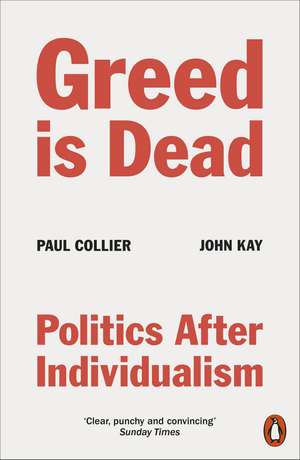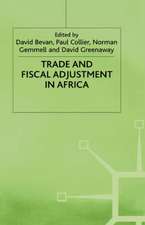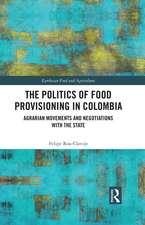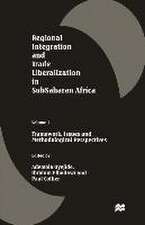Greed Is Dead: Politics After Individualism
Autor Paul Collier, John Kayen Limba Engleză Paperback – 28 iul 2021
'provocative but thought-provoking and nuanced'Telegraph
Throughout history, successful societies have created institutions which channel both competition and co-operation to achieve complex goals of general benefit. These institutions make the difference between societies that thrive and those paralyzed by discord, the difference between prosperous and poor economies. Such societies are pluralist but their pluralism is disciplined.
Successful societies are also rare and fragile. We could not have built modernity without the exceptional competitive and co-operative instincts of humans, but in recent decades the balance between these instincts has become dangerously skewed: mutuality has been undermined by an extreme individualism which has weakened co-operation and polarized our politics.
Collier and Kay show how a reaffirmation of the values of mutuality could refresh and restore politics, business and the environments in which people live. Politics could reverse the moves to extremism and tribalism; businesses could replace the greed that has degraded corporate culture; the communities and decaying places that are home to many could overcome despondency and again be prosperous and purposeful. As the world emerges from an unprecedented crisis we have the chance to examine society afresh and build a politics beyond individualism.
Preț: 52.30 lei
Preț vechi: 62.94 lei
-17% Nou
Puncte Express: 78
Preț estimativ în valută:
10.01€ • 10.88$ • 8.41£
10.01€ • 10.88$ • 8.41£
Carte disponibilă
Livrare economică 03-09 aprilie
Livrare express 15-21 martie pentru 27.63 lei
Preluare comenzi: 021 569.72.76
Specificații
ISBN-13: 9780141994161
ISBN-10: 0141994169
Pagini: 224
Dimensiuni: 129 x 198 x 13 mm
Greutate: 0.17 kg
Editura: Penguin Books
Colecția Penguin
Locul publicării:London, United Kingdom
ISBN-10: 0141994169
Pagini: 224
Dimensiuni: 129 x 198 x 13 mm
Greutate: 0.17 kg
Editura: Penguin Books
Colecția Penguin
Locul publicării:London, United Kingdom
Notă biografică
Paul
Collier
(Author)
Paul Collieris the Professor of Economics and Public Policy at the Oxford Blavatnik School of Government. He is the author ofThe Future of Capitalism,which won the 2019 Handelsblatt Prize;The Bottom Billion, which won the Lionel Gelber Prize and Arthur Ross Prize of the Council on Foreign Relations;The Plundered Planet,ExodusandRefuge(with Alexander Betts). Collier has served as Director of the Research Department of the World Bank, and works with governments around the world.
John Kay (Author)
John Kayis one of Britain's leading economists and a fellow of St John's College Oxford. His career has spanned academia, business, finance and public policy. He was the founding head of the Oxford Said Business School and the Institute for Fiscal Studies - Britain's most respected think tank. He is the author ofThe Truth About Markets,Obliquity,Other People's Moneyand other books and for twenty years contributed a regular column to theFinancial Times.
Paul Collieris the Professor of Economics and Public Policy at the Oxford Blavatnik School of Government. He is the author ofThe Future of Capitalism,which won the 2019 Handelsblatt Prize;The Bottom Billion, which won the Lionel Gelber Prize and Arthur Ross Prize of the Council on Foreign Relations;The Plundered Planet,ExodusandRefuge(with Alexander Betts). Collier has served as Director of the Research Department of the World Bank, and works with governments around the world.
John Kay (Author)
John Kayis one of Britain's leading economists and a fellow of St John's College Oxford. His career has spanned academia, business, finance and public policy. He was the founding head of the Oxford Said Business School and the Institute for Fiscal Studies - Britain's most respected think tank. He is the author ofThe Truth About Markets,Obliquity,Other People's Moneyand other books and for twenty years contributed a regular column to theFinancial Times.
Recenzii
this
thoughtful
polemic...
is
clear,
punchy
and...
convincing...
their
breezy,
no-nonsense
guide
is
packed
with
excellent
advice
-
a
plea
for
expertise
rather
than
feeling,
for
pragmatism
rather
than
ideology
and
for
listening
rather
than
shouting.
Two of the most thoughtful economists writing today ... Collier and Kay are interesting on almost every subject they alight upon.
Written by two of the UK's best economists, the book attacks the solipsistic individualism that permeates modern economics and far too much of modern society. The book's animating idea is that humans are first and foremost social animals. Our successes always depend on co-operation. The authors apply this concept to our economic, social and political institutions, which can, they argue, only be revived by being seen as self-sustaining communities.
Their analysis is pitiless and compelling. This is a fine, incisive polemic.
In a provocative but thought-provoking and nuanced argument, Collier and Kay argue that our culture of hyper-centralisation is choking us.
Two of the most thoughtful economists writing today ... Collier and Kay are interesting on almost every subject they alight upon.
Written by two of the UK's best economists, the book attacks the solipsistic individualism that permeates modern economics and far too much of modern society. The book's animating idea is that humans are first and foremost social animals. Our successes always depend on co-operation. The authors apply this concept to our economic, social and political institutions, which can, they argue, only be revived by being seen as self-sustaining communities.
Their analysis is pitiless and compelling. This is a fine, incisive polemic.
In a provocative but thought-provoking and nuanced argument, Collier and Kay argue that our culture of hyper-centralisation is choking us.

























